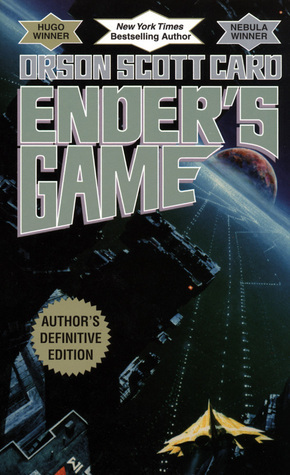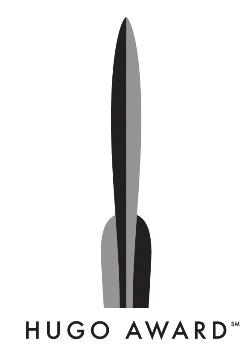Fifth in a series of blog posts about the songs on my new CD, Distorted Vision.
E is for Ender — Andrew “Ender” Wiggin — the boy genius turned military commander in Orson Scott Card’s novel Ender’s Game. Faced with the disorientation of zero gravity during Battle School, Ender devised a simple way to orient himself and his troops during the battle “game” — he began thinking of the objective (the gate by which the opposing force would enter the Battle Room) as “down.” Thus, in the Battle Room, “the enemy’s gate is down.”
The enemy lurks in the endless sky
And gave us no choice but to win or die
But justice will not be denied
The enemy’s gate is down, the enemy’s gate is down, down, down

Ender’s Game, by Orson Scott Card.
The novel Ender’s Game got me back into reading science fiction after a long hiatus.
When I was a mid-grade captain in the USAF, stationed at Vandenberg AFB, one of the lieutenants in our unit suggested I read Ender’s Game. For several years almost all of my off-duty reading had been either school- or military-related, and I did little pleasure reading despite having been an avid science fiction reader before college.
Reading Ender’s Game, I realized what I had been missing.
I still had other reading to do, but gradually I added more science fiction and fantasy to my off-duty reading. My wife and I began reading some SF&F classics to one another on long trips — Starship Troopers on one trip, for instance, and then when our children were old enough that they would listen we read The Hobbit, The Lord of the Rings, and the Harry Potter novels.
Gradually I also added more Orson Scott Card novels to my shelves. I don’t remember how long it was before I realized that I had first encountered his fiction in Omni magazine, back when I had been one of that magazine’s earliest subscribers.
When I was stationed in Greenland, for a brief period of time I was part of an online writing group that OSC sponsored on his website. I learned a good bit from the experience, and during that assignment I wrote my first novel. (After many rejections I got an offer on it from a small publisher, but did not proceed with the deal — a story for another day.)
In 2003 I attended OSC’s writing workshop at UNC-Greensboro, where I found out a lot of what I had done wrong in that first novel. Then in 2004 he selected me as one of the students for his Literary Boot Camp, held that year at Southern Virginia University in Buena Vista, Virginia. I learned so much during that week that I still haven’t put into practice, but I have seen some small success with my short fiction since selling my first story in 2007 and making my first “professional” sale in 2010.
So not only because the novel got me back into reading SF&F, but because it rejuvenated my long-comatose dream of writing and publishing my own stories, being able to do a song based on Ender’s Game meant a lot to me. (Where that dream morphed into writing and publishing songs, I’m not sure; I guess I needed another hobby.)
Anyway, in the song I wanted a martial beat to capture the battle feel and I tried to compose words that would reflect the difficulties of fighting an implacable enemy in order to protect those we hold dear.
There are times when you fight, win however you can
The price you pay is your soul … piece by piece by piece
It’s a pittance to offer, for your fellow man
To guard those we love and treasure while they peacefully sleep
And in the final chorus, I change the focus from the determination we must have to face the enemy to the price we pay in doing so.
The price of freedom is always high
We pay it when we kill, and we’ll pay it if we die
But we pay it for the futures of those we left behind
The enemy’s gate is down, the enemy’s gate is down, down, down
If I’d been more forward-thinking, I would have written and released the song to coincide with the release of the movie. But my sense of timing has never been that good.
Anyway, whether you’ve read Ender’s Game (or seen the movie) or not, and even if you can’t relate to the feelings expressed in the song, I hope you like “The Enemy’s Gate is Down”!
___
One final note: Both the first chorus and the second chorus include subtle, if not downright obscure, homages to renowned science fiction authors. Can you pick them out?














